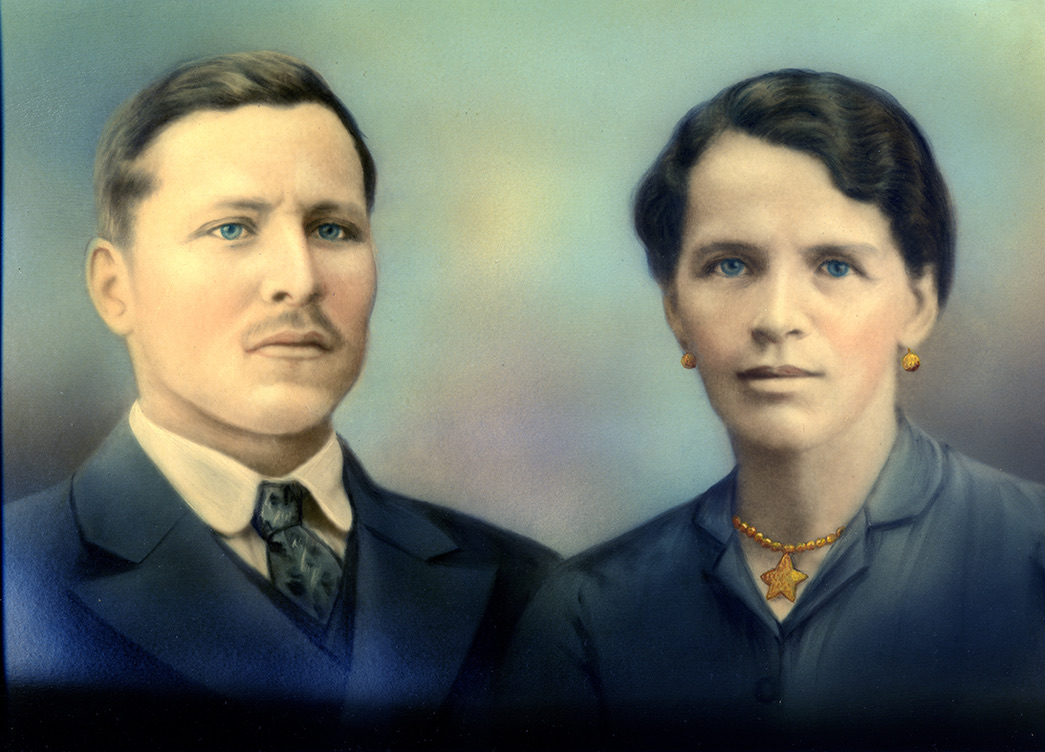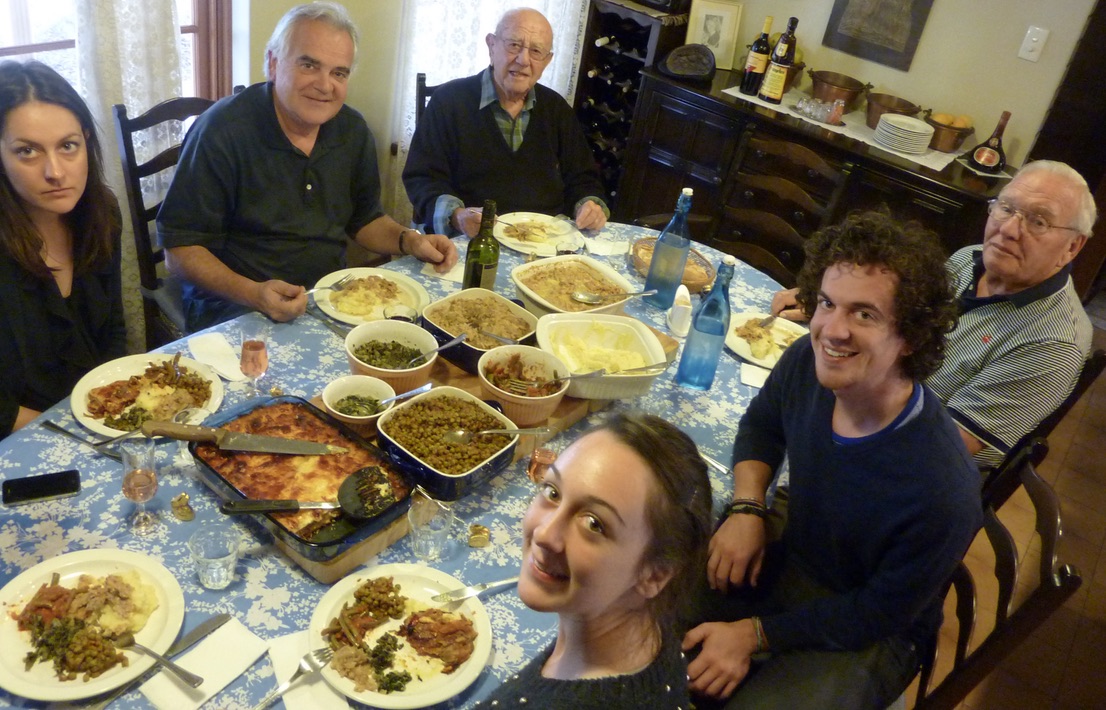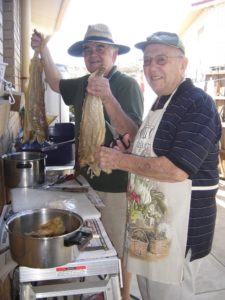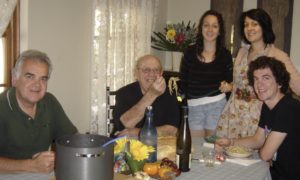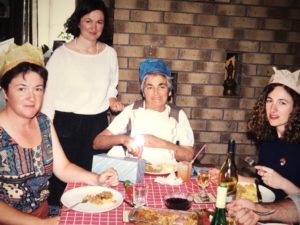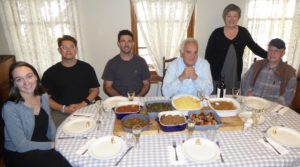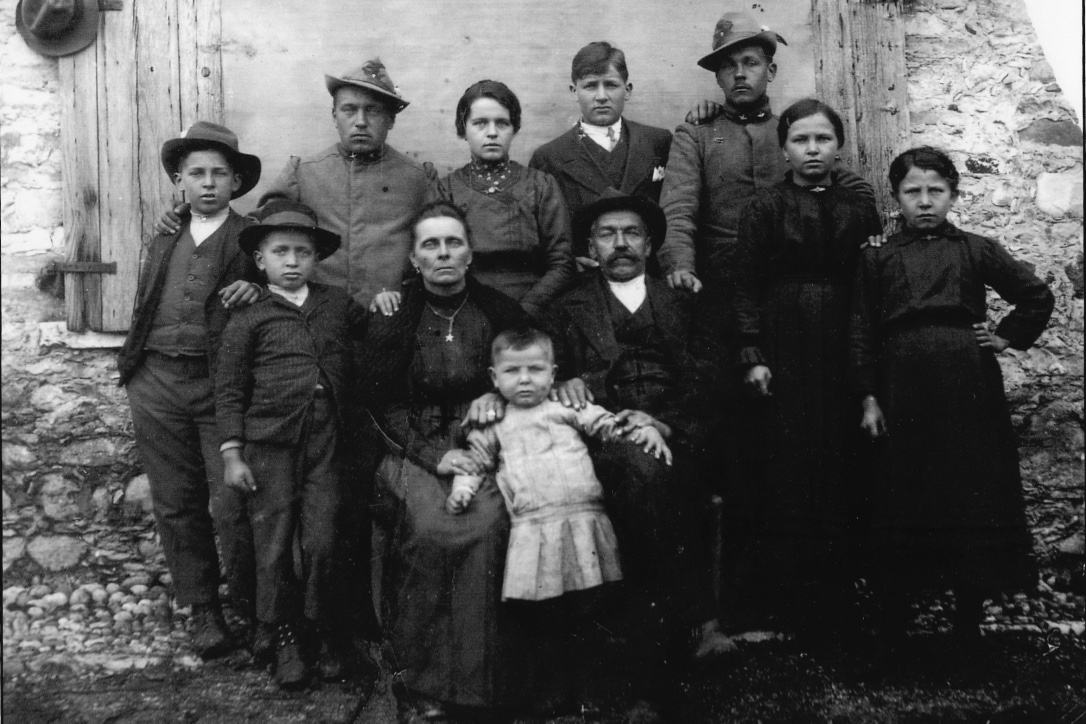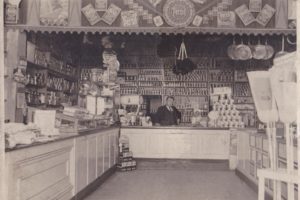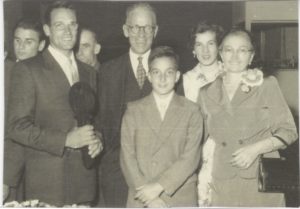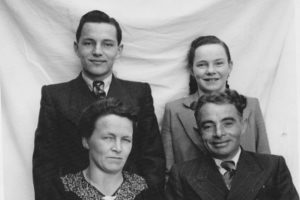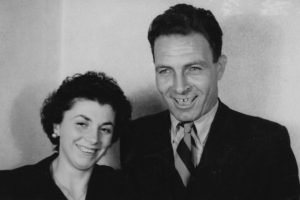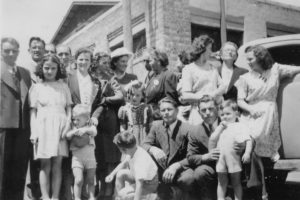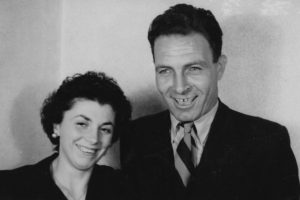On behalf of all subscribers I send best wishes to families in Italy.
We are saddened and shocked about COVID-19 in Italy and hope that the situation improves for everyone.
Information for this blog has been gathered from interviews, relatives and archival research in Bigolino
Brunone, (Bruno) was the seventh of eight children born to Bortolo Rebuli and Teodora Vettoretti who were contadini or peasant farmers in Bigolino in the province of Treviso. They grew small crops of wheat and corn and grapes. Bruno was born 23 October 1893 in Bigolino, Province of Treviso. After limited schooling, he worked on the land with his family. During World War I he had served in the army corps of the Alpini (Italian mountain troops).
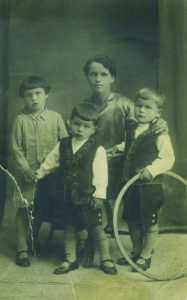
In 1922 Bruno married Giovanna (Nana) Rossetto and they had three children, Dorina, Albino and Elvio. Bruno migrated in 1927 with three of his brothers-in-law because of poverty and the difficulties of living in Fascist Italy. Another brother-in-law, Domenico Rossetto who had arrived in Adelaide in 1926, nominated him. It was the Depression and Bruno took work where he could get it, including for a farmer on Kangaroo Island. In 1931 he sent for Nana and the three children aged 8, 7 and 6 years. By that time, he was living on Frogmore Road and worked glasshouses on the corner of Frogmore and Valetta Roads. Guido, the youngest child, was born in Adelaide in 1938.
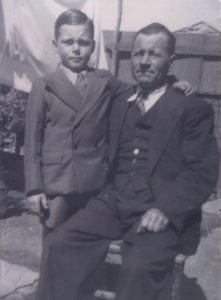
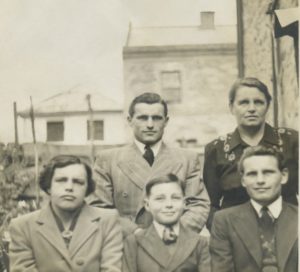
When Bruno died in 1947, the two older brothers, Albino and Elvio continued to work the market gardens for several years. Albino (Vito) married Antonietta Danieli in 1962 and they had two children. Elvio (Shorty) married Milva Zampin in 1952 and they had eight children. Guido married Pam Vining in 1965 and they had three daughters.
After the war, the Rebuli family welcomed Bruno’s nephews, Richetto and Teodoro and their families, and a niece, Ginevra. In 1949, Nana sponsored Bruno’s nephew, Teodoro who was followed a year later by his wife, Amabile and their son Giovanni (Johnny) aged 2 years.
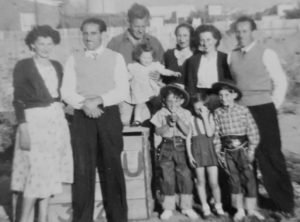
In 1950 Nana also sponsored Teodoro’s brother Richetto who was joined six months later by his wife Eti and their two children, Bruno and Rosanna. The two families were closely connected: Eti and Amabile were sisters who had married brothers, Richetto and Teodoro. Johnny returned to Italy in 1967 and his parents, Amabile and Teodoro followed. Ginevra married Angelo Caon from Loria (Treviso) and settled in Adelaide where they had 3 children: Cosetta, Angelo and Ivan.
The Rebuli family remained in close contact with their Rossetto cousins. In their interviews Johnny and Maria Rosa Tormena and Lena and Aldo Rossetto recall visiting the Rebuli family on Frogmore Road. In the 1960s the Rebuli family bought a mixed business on Grange Road and Guido collected orders and delivered groceries to local Italian families.
Nana died in 1977. Dorina died in 1996, Elvio died in 1997 and Albino, in 2007. Teodoro died in 1990 and Amabile in 2016. Richetto and Eti continue to live in Adelaide.
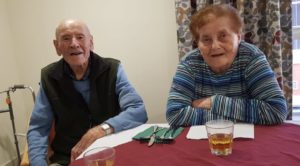
You can read more about the Rebuli family on the web pages by watching the video with Elena Rebuli: and listening to interviews with Enrico (Richetto) Rebuli, Guido Rebuli, Giovanni (Johnny) Rebuli, Milva Rebuli nee Zampin. Also there are interviews with cousins: Aldo Rossetto, Bruna Rossetto nee Battaglia, Lena Moscheni nee Rossetto, Giovanni (Johnny) Tormena, and Maria Rosa Tormena.
Thank you to Johnny Rebuli for the Italian translation.
speriamo che la situazione migliori per tutti.
La famiglia Rebuli di Bigolino
Le informazioni per questo blog sono state raccolte da interviste, i parenti
e ricerche d’archivio a Bigolino.
Brunone, (Bruno) era il settimo di otto figli nati da Bortolo Rebuli e Teodora Vettoretti che erano contadini a Bigolino in provincia di Treviso. Coltivavano piccoli raccolti di grano, mais e uva. Bruno nacque il 23 ottobre 1893 a Bigolino, in provincia di Treviso. Dopo una scolarizzazione limitata, ha lavorato sulla terra con la sua famiglia. Durante la prima guerra mondiale aveva prestato servizio militare nel corpo degli Alpini.

Nel 1922 Bruno sposò Giovanna (Nana) Rossetto ed ebbero tre figli, Dorina, Albino ed Elvio. Bruno emigrò nel 1927 con tre dei suoi cognati a causa della povertà e delle difficoltà di vivere nell’Italia fascista. Un altro cognato, Domenico Rossetto, arrivato ad Adelaide nel 1926, gli fece da garante. C’era la depressione e per i primi due o tre anni Bruno lavorò laddove poteva, anche per un contadino su Kangaroo Island. Nel 1931 mandò a chiamare Nana e i tre bambini di 8, 7 e 6 anni. A quel tempo viveva su Frogmore Road e lavorava serre all’angolo tra Frogmore e Valetta Roads. Guido, il bambino più piccolo, è nato ad Adelaide nel 1938.


Alla morte di Bruno nel 1947, i due fratelli maggiori, Albino ed Elvio, continuarono a lavorare nelle serre per diversi anni.
Dopo la guerra, la famiglia Rebuli accolse i nipoti di Bruno, Richetto e Teodoro e le loro famiglie e una nipote, Ginevra. Nel 1949, Nana sponsorizzò il nipote di Bruno, Teodoro, che fu seguito un anno dopo dalla moglie Amabile e dal figlio Giovanni (Johnny) di 2 anni.

Nel 1950 Nana sponsorizzò anche il fratello di Teodoro, Richetto, che fu raggiunto sei mesi dopo da sua moglie Eti e dai loro due figli, Bruno e Rosanna. Le due famiglie erano legate strettamente: Eti e Amabile erano sorelle che avevano sposato i fratelli, Richetto e Teodoro.
Giovanni (Johnny) tornò in Italia nel 1967 e i suoi genitori, Teodoro e Amabile, seguirono nel 1968. Ginevra si è sposata con Angelo Caon, originario di Loria (Treviso) e si sono stabiliti ad Adelaide con 3 figli: Cosetta, Angelo e Ivan.
La famiglia Rebuli rimase in stretto contatto con i loro cugini Rossetto. Nelle loro interviste Johnny e Maria Rosa Tormena e Lena e Aldo Rossetto ricordano di aver visitato la famiglia Rebuli in Frogmore Road. Negli anni ’60 la famiglia Rebuli acquistò un’attività mista su Grange Road e Guido raccolse ordini e consegnò generi alimentari a famiglie italiane locali. Nana morì nel 1977. Teodoro morì nel 1990 e Amabile nel 2016. Richetto ed Eti continuano a vivere ad Adelaide.

Puoi leggere di più sulla famiglia Rebuli guardando il video di Elena Rebuli: o ascoltando le interviste di Enrico (Richetto) Rebuli, Guido Rebuli, Giovanni (Johnny) Rebuli, Milva Rebuli nee Zampin e con i cugini: Aldo Rossetto, Bruna Rossetto nee Battaglia, Lena Moscheni nee Rossetto, Giovanni (Johnny) Tormena, Maria Rosa Tormena, .
Grazie a Johnny Rebuli per la traduzione italiana.
